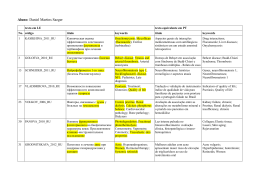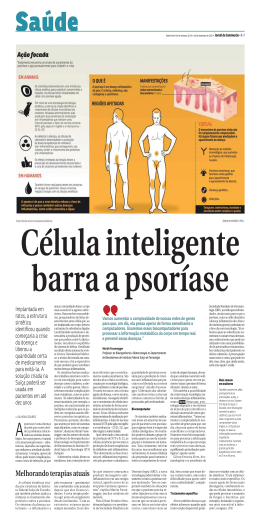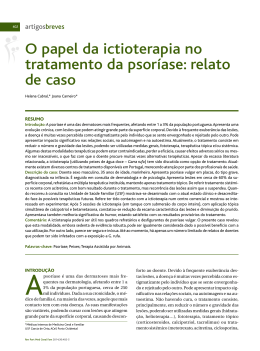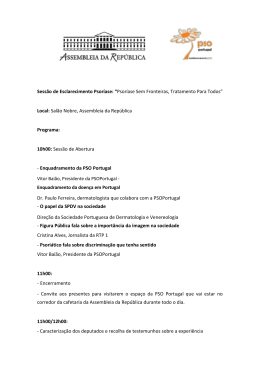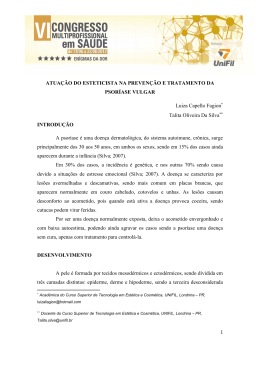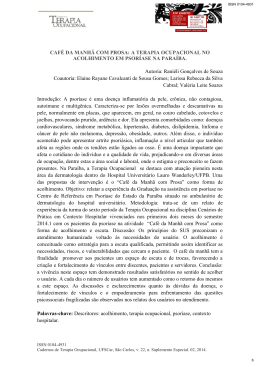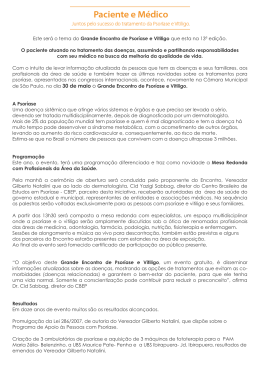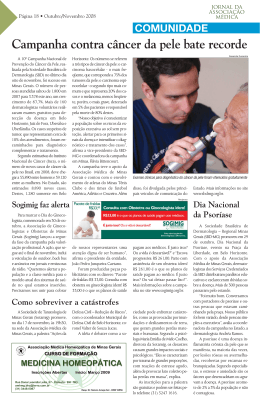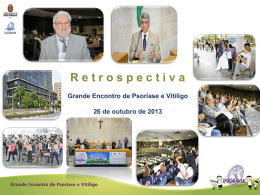EXPERIÊNCIA À FLOR DA PELE: ESTUDO ANTROPOLÓGICO SOBRE PESSOAS COM PSORÍASE Autor: NALDIMARA FERREIRA VASCONCELOS Tipo de Trabalho de Data da Defesa: 10/09/2014 Conclusão: DISSERTAÇÃO Resumo: O presente trabalho aborda a experiência da doença na vida social das pessoas com psoríase atendidas no Centro de Referência de Apoio e Tratamento aos Portadores de Psoríase, localizado no Hospital Universitário Lauro Wanderley - HULW, na capital da Paraíba. A psoríase é uma doença sistêmica inflamatória crônica, não contagiosa, que afeta a pele, couro cabeludo, as unhas e ocasionalmente as articulações, caracteriza-se pela presença de manchas vermelhas, espessas e descamativas na pele. O interesse pela experiência da doença situa este estudo no âmbito da antropologia da saúde, especificamente abordando o significado do adoecer no cotidiano das relações sociais das pessoas com psoríase, além das noções de itinerários terapêuticos. Uma das mais fortes características dessa doença é a cronicidade, termo utilizado pela biomedicina e no âmbito das ciências sociais para designar “doenças de longa duração”, que compreendem os processos de adoecimento cuja cura é inexistente, mas que possuem tratamento e controle das implicações. O estigma é um dos aspectos relatados, já que as lesões podem trazer prejuízos à qualidade de vida, seja pela coceira que pode estar presente, seja por lesões em lugares visíveis da pele, podendo assim, comprometer a autoestima e a interação com outras pessoas. A pesquisa é desenvolvida sob o olhar da antropologia da doença, que entende a relação saúde/doença e o papel assumido pela biomedicina na sociedade contemporânea. Para tanto, utiliza-se o enfoque etnográfico, através de técnicas de investigação, que envolvem entrevistas qualitativas com os portadores de psoríase e alguns familiares. Palavras-chave: Experiência da Doença, Doença de longa duração; Estigma e Itinerários Terapêuticos. Abstract: This work approaches the experience of illness in the social life of people with psoriasis treated at the Reference Center Support and Treatment for Carriers with Psoriasis, located at the University Hospital Lauro Wanderley - HULW, in the capital of Paraíba. Psoriasis is a chronic inflammatory systemic disease, not contagious, that affects the skin, scalp, nails and occasionally the joints, characterized by red spots, characterized by the presence of red, thickened and scaly patches of skin. The interest in the experience of illness this study lies within the anthropology of health, specifically addressing the meaning of illness in everyday social relations of people with psoriasis, beyond notions of therapeutic itineraries. One of the strongest characteristics of this disease is a chronic, term used by biomedicine and the social sciences to refer to "long-term illnesses", who understand the processes of illness whose cure is nonexistent, but have treatment and control implications. Stigma is one of the aspects reported, since the lesions may bring harm to the quality of life, is the itch that may be present, either by lesions in visible places of the skin, and can thus compromise the self-esteem and interaction with others. The research is developed from the perspective of anthropology of disease that understands the relationship between health / disease and the role played by biomedicine in contemporary society. To do so, it uses the ethnographic approach, through research techniques, involving qualitative interviews with patients with psoriasis and some relatives. Keywords: Experience of Illness, Disease of long duration; Stigma and Therapeutic Itineraries. Volume: 1 Páginas: 110 Idioma: PORTUGUES
Download
